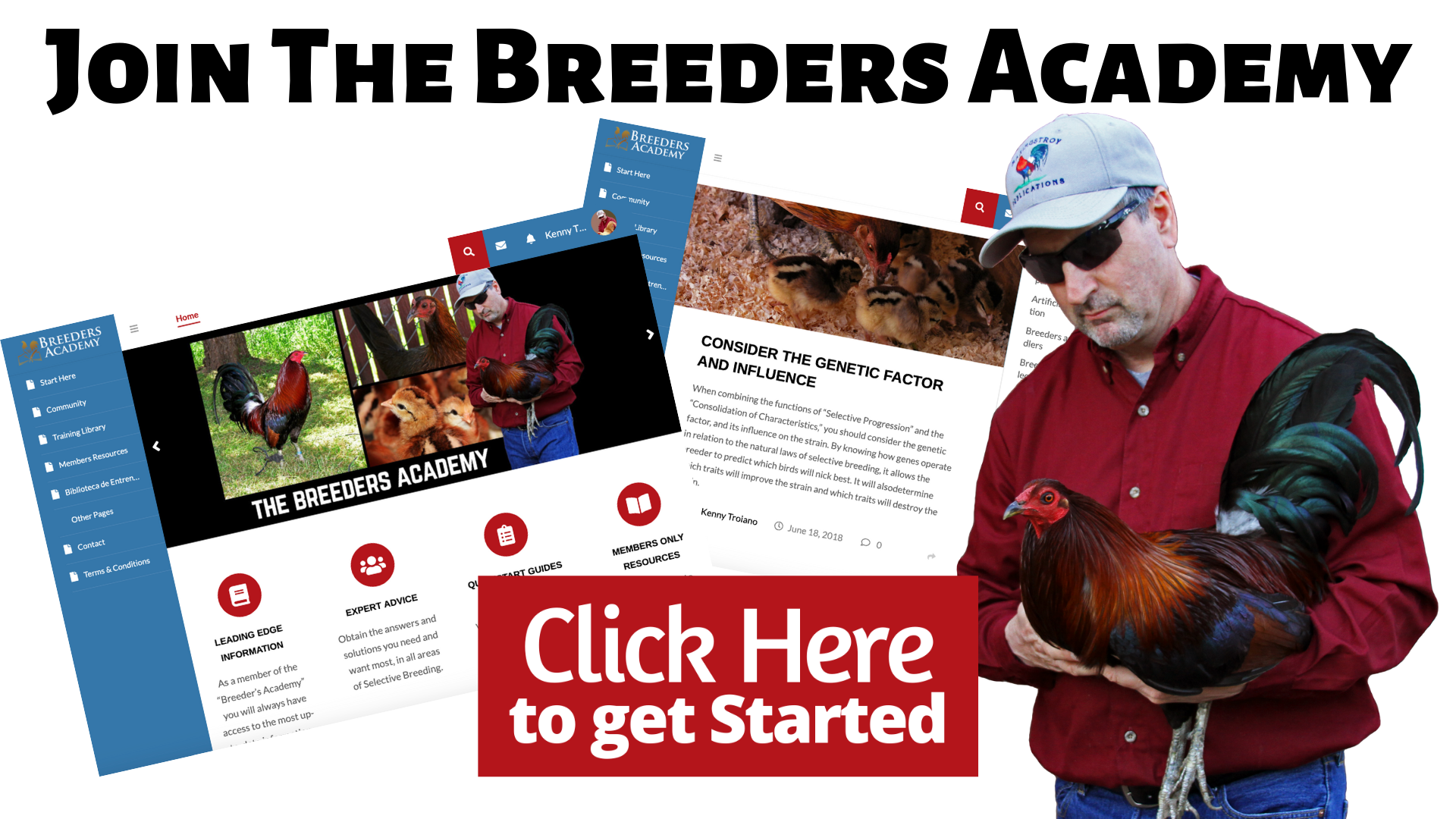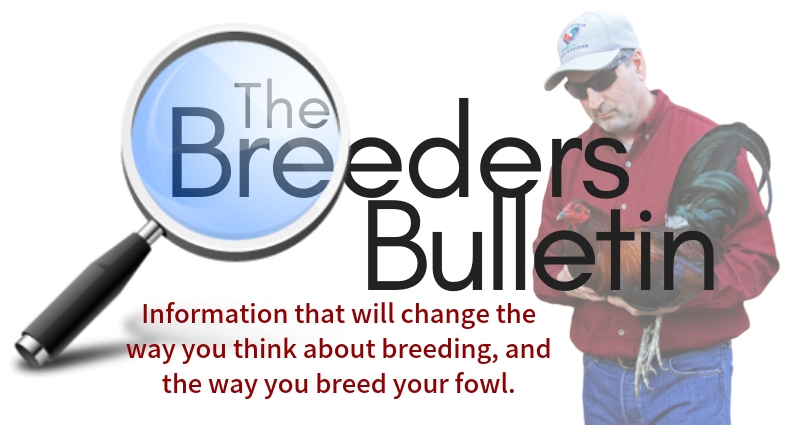In this urgent episode of Bred to Perfection, host Kenny Troiano is joined by Jesse Ortega, California poultry health inspector and APG President, to discuss the far-reaching implications of California’s proposed Assembly Bill 928. Though proposed as an anti-cockfighting measure, AB 928 could severely restrict rooster ownership for all breeders—gamefowl and domestic alike—threatening heritage lines, biosecurity, and local economies. Learn what this bill really means, why breeders should be concerned, and how you can take action to protect your rights and the future of poultry breeding. Don’t miss this critical call to action!
Audio Chapters
Impact of AB 928 on Poultry Breeding: Insights and Actions
In this episode of ‘Bred to Perfection,’ Kenny Troiano discusses the impact of California’s proposed AB 928 bill with poultry health inspector, and California APG President, Jesse Ortega. The bill, which aims to limit the number of roosters per property, could drastically affect all poultry breeders by imposing stringent rules and hefty fines. They talk about the bill’s implications, potential penalties, and its broad scope affecting both gamefowl and domestic chicken breeds. The conversation highlights urgent actions breeders can take, including contacting legislators, submitting opposition letters, and potentially taking legal action if the bill passes. The episode underscores the importance of collective action to protect breeders’ rights and stresses the wider economic repercussions on feed stores, hatcheries, and all backyard breeders.
- 00:00 Introduction to Maximus Troy Publications
- 00:53 Welcome to Bred to Perfection
- 01:58 Special Guest: Jesse Ortega and his Background
- 02:55 Discussion on AB 928 Bill
- 03:55 Penalties and Enforcement Concerns
- 04:01 Potential Impact on Breeders
- 06:10 Biosecurity and Enforcement Issues
- 09:58 Legislative Process and Political Implications
- 11:41 Community Response and Actions
- 15:13 Constitutional and Cultural Concerns
- 18:04 Social Media and Breeder Responsibility
- 18:56 The Impact of Social Media on Perception
- 19:47 Economic Consequences of the Bill
- 20:27 Call to Action: Contacting Representatives
- 21:43 Political Opposition and Support
- 22:46 Exemptions and Requirements in the Bill
- 23:35 Health and Care of Gamefowl vs. Poultry
- 24:16 The Fight Against the Bill: Strategies and Challenges
- 26:04 The Broader Implications of the Bill
AB 928: A Dangerous Precedent Threatening All Breeders
By Kenny Troiano of Maximus Troy Publications – Bred to Perfection Blog
In the latest episode of the Bred to Perfection podcast, host Kenny Troiano is joined by Jesse Ortega—California poultry health inspector and President of the California APG—to unpack one of the most concerning pieces of legislation to hit the poultry world in recent years: California Assembly Bill 928 (AB 928).
While presented as a measure to curb illegal cockfighting, AB 928 is a sweeping proposal that threatens the rights and livelihoods of all poultry breeders—whether you raise gamefowl, heritage breeds, or backyard chickens. The ramifications go far beyond the bill’s surface and could fundamentally alter the future of poultry breeding in California and possibly set a dangerous legal precedent nationwide.
What Is AB 928?
AB 928 seeks to restrict the number of roosters an individual may legally own. Under the bill, any bird six months or older, with mature plumage or the ability to crow, is legally considered a rooster—regardless of breed or purpose.
What makes this bill especially problematic is not only its vague and overly broad definitions, but also its harsh penalties:
- Fines of up to $2,500 per rooster, per day for exceeding the allowable limit.
- Unclear enforcement protocols, including the potential for confiscation of birds.
There is no provision for transition, no grace period for reducing flock numbers, and no mention of what happens to seized birds—posing serious logistical, financial, and ethical concerns.
How AB 928 Affects All Breeders—Not Just Gamefowl Enthusiasts
Many assume this bill only targets gamefowl breeders. That assumption is dangerously misleading. Here’s why every poultry breeder—from hobbyist to professional—should be deeply concerned:
1. Strain Development at Risk
Selective breeding requires multiple generations and a large enough gene pool to evaluate traits like type, conformation, color, temperament, vigor, egg production, feather quality, and more. Restricting rooster ownership makes it impossible to refine or improve bloodlines responsibly.
2. Heritage and Conservation Breeds in Jeopardy
Small-scale and heritage breeders often work with endangered or rare breeds. These projects require multiple males to maintain genetic diversity. AB 928 could cripple conservation efforts that protect poultry biodiversity.
3. Biosecurity Threats
In their effort to enforce rooster limits, inspectors may confiscate and relocate birds—risking disease spread by mixing flocks from various sources. Ironically, a bill allegedly intended to promote biosecurity could accelerate outbreaks of diseases like Newcastle or avian flu, not to mention – infectious coryza, chronic respiratory disease, bronchitis, laryngotracheitis, just to name a few.
4. Economic Fallout
Feed stores, hatcheries, equipment suppliers, and local poultry shows all depend on a thriving breeder community. If AB 928 passes, these businesses could face massive financial losses, leading to closures and job cuts across the agricultural sector.
Legal and Cultural Implications
Violation of Property and Civil Rights
Allowing authorities to enter private property or seize animals based on crowing alone raises Fourth Amendment concerns regarding unlawful search and seizure. The bill could lack due process protections, making it ripe for legal challenges.
Cultural Discrimination
For many ethnic communities, particularly in Filipino, Latino, and Southeast Asian cultures, poultry breeding is not only a livelihood, but a cultural tradition passed down through generations. AB 928, whether intentional or not, unfairly targets these practices—leading to claims of discrimination.
What Can Breeders Do?
This is not just a legislative issue—it’s a community call to action. Here are the steps every breeder should take now to oppose AB 928:
✅ Contact Your Assembly Member and State Senator
Politely, but firmly voice your opposition to the bill. Share how it personally affects your operation, your family, and your community. Numbers matter—every call, letter, and email counts.
✅ Register Opposition Through Legislative Portals
Use the California Legislature’s official portal to submit your public comment on the bill. This becomes part of the public record and is reviewed during committee hearings.
✅ Unite Across Poultry Associations
Join forces with local and national organizations, like the California APG, American Poultry Association, and 4-H clubs. A unified voice is much harder to ignore.
✅ Be Smart About Social Media
Be mindful of what you post. Misinterpretations can be used to justify enforcement actions. Stay respectful, informed, and professional in your online presence.
Preparing for the Worst-Case Scenario
Should AB 928 pass, the fight isn’t over. Legal challenges will likely follow, targeting the bill’s:
- Overreach
- Vagueness
- Violation of constitutional rights – Breeders must be prepared to support or participate in these legal battles to defend their rights in court.
Final Thoughts: Why This Matters More Than Ever
This isn’t just a fight for the right to own roosters. This is about preserving a legacy, protecting agricultural diversity, and defending constitutional freedoms. AB 928 is a slippery slope. If California can limit your birds today, who’s to say what other states will do tomorrow?
The time to act is now.
Talk to your fellow breeders.
Attend local meetings.
Stay informed and involved.
Let’s make sure Sacramento hears us loud and clear:
We are breeders, we are stewards of poultry heritage, and we will not be silenced.
Take Action:
- Read the full bill: AB 928 Text
- Sign the petition: Reject AB 928
- Contact your legislator: Find Your Rep
Got questions or want to get involved? Reach out to Jessie at caapg@yahoo.com

